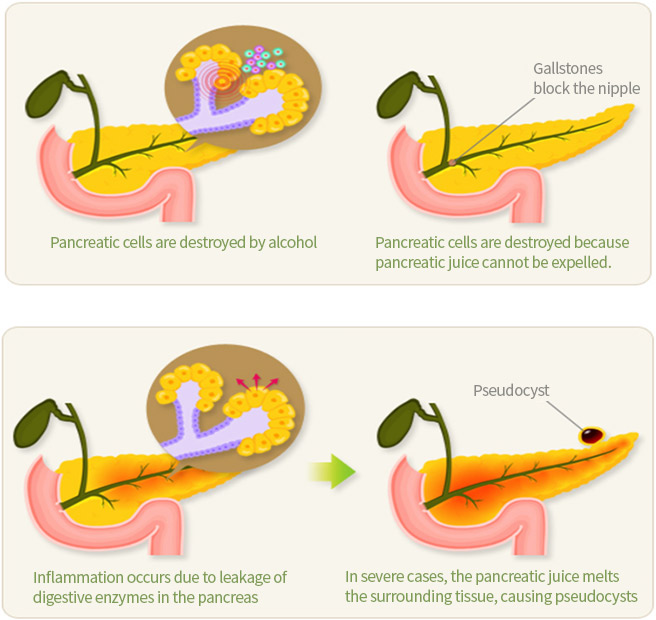PIPELINE
For a better future SCM Lifescience will do its best
Stem Cell Therapy
Severe acute pancreatitis
01
Disease Overview

source : Korea Disease Control and Prevention Agency API_HealthInfo
Definition
- Damage to the pancreatic gland cells (exocrine cells of the pancreas) occurs due to various causes such as gallstones, drinking alcohol, metabolic disorders, drugs, and abdominal damage. Inflammatory disorders of the pancreas that can lead to organ failure
Cause
- Usually caused by alcohol or gallstones in the gallbladder or bile ducts
- The exact mechanism by which alcohol causes acute pancreatitis is still unknown. Gallstones obstruct the flow of pancreatic juice, causing acute pancreatitis.
Symptom
- Ten to one or two will progress to severe pancreatitis
- In severe cases, the pancreas itself does not circulate, resulting in necrosis in which the pancreas tissue rots.
- 20% of patients with acute pancreatitis develop severe acute pancreatitis, and 36-50% of them show hypotension and shock due to systemic inflammatory response due to organ failure within the first few days, and multiple organ failure including kidney and lungs will result in death.
Designated as an orphan drug in the 29rd development stage for patients with severe acute pancreatitis in Korea
by the Ministry of Food and Drug Safety (2020.10)
by the Ministry of Food and Drug Safety (2020.10)
02
Phase 2 clinical design
Phase 2a Clinical trial completed
-
Indicationmoderately severe to severe
acute pancreatitis -
Number of patients36 people
Cohort 1: 20 subjects in the test group
Cohort 2: 16 patients in the placebo group -
Dosing regimen2 weeks intervals / 3 times
1.0 X 106 cells/kg,
Day0, 1, 2 -
Designmulticenter, double-blind, placebo control
-
Primary Endpoint
Modified Marshall Score at 7 days or CT Severity Index at 28 days from baseline
clinical trial institution









